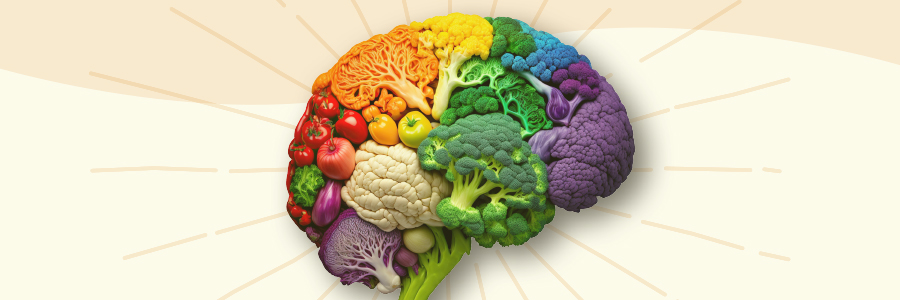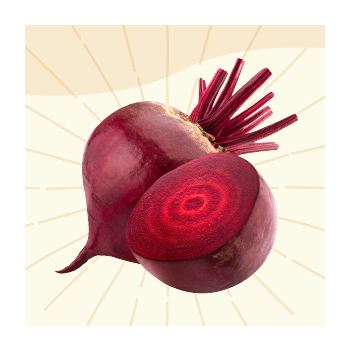


Sign-up for {N}power to get exclusive discounts, newsletters, members-only features, and more!

(P.S., it’s never too early to start!)
There was a time, not too long ago, when “old” meant feeble, frail, and forgetful, and we just accepted that physical and cognitive decline were an inevitable part of aging, but aging is not what it used to be. We have evolved past that very limited view and today’s older adults are living their best lives—vital, strong, active, and independent. And even better? Adults don’t seem to be afraid of aging. A recent survey of 2,000 U.S. adults found that more than half were not afraid of growing old, and the older people got, the less they feared it. Yet, there are some fears and concerns that come with the privilege of growing older. For example, 63 percent of respondents said they feared declining health as they got older, with cognitive decline being at the top of the list (Gen Z, Gen X, and baby boomers feared cognitive decline the most). The older people got (77 and up), the more concerned they were about cognitive decline.1
 But people are being proactive about maintaining brain health as they age—a large number of adults report regularly playing brain-stimulating games/puzzles, staying socially engaged, prioritizing sleep, taking supplements, and embracing fitness and nutrition as ways to support cognitive health.
But people are being proactive about maintaining brain health as they age—a large number of adults report regularly playing brain-stimulating games/puzzles, staying socially engaged, prioritizing sleep, taking supplements, and embracing fitness and nutrition as ways to support cognitive health.
Your diet has a tremendous impact on brain health—our brains rely on a continuous supply of nutrients that affect both the structure and function of the brain (i.e., everything from brain cell health to neurotransmitter production)—and research continues to prove that a poor diet will lead to negative changes in the brain. For example, a study published in 2022 in JAMA Neurology, found an association between the consumption of ultra-processed food and cognitive decline. The study, conducted between 2008 and 2017 analyzed the diets of 10,775 adults between the ages of 35 and 74; results showed that the people who ate the most ultra-processed food had a faster rate of cognitive decline compared to those who ate the least amount.2 A more recent study, published in May 2023, concluded that a diet low in flavanols—a family of antioxidants found in certain fruits and vegetables—drives age-related memory loss. The study, conducted by researchers from Columbia University and Brigham and Women’s Hospital, found that flavanol intake among older adults correlated with scores on tests designed to detect age-related memory loss and that replenishing these antioxidants in the flavanol-deficient adults improved performance on these tests. The study builds on previous research that linked age-related memory loss to changes in the hippocampus, a region of the brain that is vital for learning new memories, showing that flavanols improve function in this region.3

What constitutes a brain-healthy diet? A study from Columbia University found that people who consistently ate a Mediterranean-style diet had larger brain sizes and less atrophy (shrinking). In the people studied, who averaged 80 years of age, the larger brain sizes were comparable to being five years younger.4 This brain-protective effect was confirmed in a separate analysis of 18 studies, with researchers reporting that people who consistently ate a Mediterranean-style diet had a slower rate of cognitive decline, a lower risk of Alzheimer’s disease, and improvements in cognitive function.5 The Mediterranean diet emphasizes wild-caught fish, fruits and vegetables, full-fat dairy, legumes, whole grains, nuts and seeds, herbs, and olive oil.
These nutrients are foundational supplements for brain health—taken regularly, they work synergistically to maintain optimal brain function. The omega-3 fats EPA and DHA, found in fish oil, have been found to exhibit a neuroprotective effect, and supplementation has been shown to improve cognitive function.6 7 8 9 The B vitamins are required by the body for normal neurological function, including for the synthesis of neurotransmitters, and have neuroprotective effects, particularly when it comes to preventing brain shrinkage.10
The omega-3s have also been linked to larger brain sizes. Researchers at the University of South Dakota analyzed blood levels of the omega-3s EPA and DHA in 1,111 women whose average age was 78 years. The researchers took brain scans to determine the size of the women’s brains. When the researchers followed up eight years later, they found that women with the highest blood levels of both EPA and DHA had the largest brain sizes. The size of the women’s hippocampus, which is involved in memory, was substantially larger compared with women who had low levels of EPA and DHA.11 Take 2,000 to 3,000 mg of fish oil daily for optimal support.
 Beets are an incredible source of dietary nitrates, which the body converts to nitric oxide (NO), a molecule that plays an important role in maintaining normal cognitive function, including promoting plasticity, mitochondrial biogenesis in the brain, and supporting the growth of healthy neurons, as well as learning and memory formation. NO has been found to increase blood flow to the brain, specifically to areas of the brain often associated with degeneration that can lead to dementia.12 NO levels naturally decline with age, and there is evidence that the loss of NO may contribute to cognitive decline.13 14 A 2021 study including adults between the ages of 70 and 80 found that 10 days of drinking about 3 cups of beetroot juice daily led to enhanced focus on cognitive tests.15
Beets are an incredible source of dietary nitrates, which the body converts to nitric oxide (NO), a molecule that plays an important role in maintaining normal cognitive function, including promoting plasticity, mitochondrial biogenesis in the brain, and supporting the growth of healthy neurons, as well as learning and memory formation. NO has been found to increase blood flow to the brain, specifically to areas of the brain often associated with degeneration that can lead to dementia.12 NO levels naturally decline with age, and there is evidence that the loss of NO may contribute to cognitive decline.13 14 A 2021 study including adults between the ages of 70 and 80 found that 10 days of drinking about 3 cups of beetroot juice daily led to enhanced focus on cognitive tests.15
Recent research investigating lutein’s role in the brain in adults over the age of 50 found that high levels of lutein were associated with better scores in several measures of cognitive function, including memory and executive function, which includes reasoning and judgement, planning, focus, and regulating emotions.16 Lutein provides both antioxidant and anti-inflammatory protection to brain cells. It also enhances blood flow and improves communication between neurons; essentially, lutein helps the brain work smarter, not harder.17 18 19 It can also increase brain-derived neurotropic factor (BDNF), which plays an important role in neuronal growth and promotes brain plasticity.20 Aim for 20 mg daily.
 This herb has been used for centuries in the Indian Ayurvedic tradition to improve memory and intellect and was recommended in ancient Ayurvedic texts for a range of mental conditions, including anxiety, poor cognition, and lack of concentration. More recently, bacopa has been investigated for its effects on cognition, with positive results. Supplementation with 300 mg bacopa daily resulted in significant improvement in memory recall, information retention, verbal learning, and depression and anxiety scores.21 22 Modern research has investigated bacopa’s mechanisms of action and has found that compounds in the herb can enhance communication between nerves and help regenerate synapses and repair damaged neurons, improve neuronal synthesis, and increase brain serotonin, a neurotransmitter that promotes feelings of wellbeing and happiness.23
This herb has been used for centuries in the Indian Ayurvedic tradition to improve memory and intellect and was recommended in ancient Ayurvedic texts for a range of mental conditions, including anxiety, poor cognition, and lack of concentration. More recently, bacopa has been investigated for its effects on cognition, with positive results. Supplementation with 300 mg bacopa daily resulted in significant improvement in memory recall, information retention, verbal learning, and depression and anxiety scores.21 22 Modern research has investigated bacopa’s mechanisms of action and has found that compounds in the herb can enhance communication between nerves and help regenerate synapses and repair damaged neurons, improve neuronal synthesis, and increase brain serotonin, a neurotransmitter that promotes feelings of wellbeing and happiness.23



Sign-up for {N}power to get exclusive discounts, newsletters, members-only features, and more!